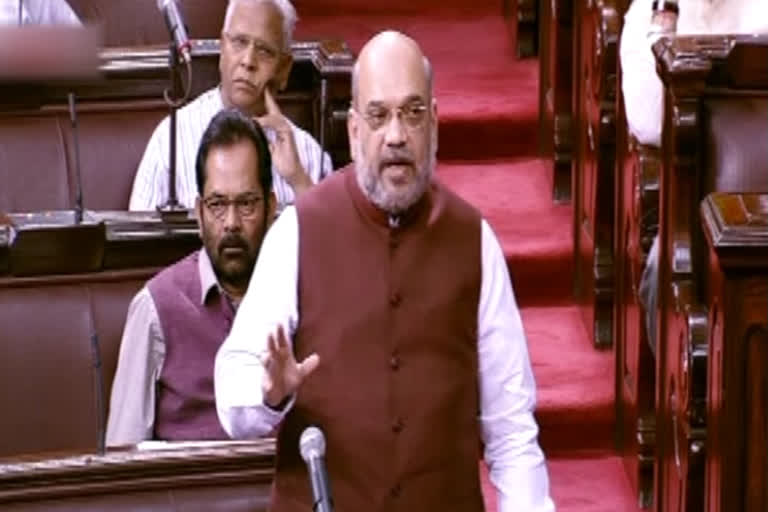New Delhi: Parliament Wednesday approved a bill to enable the National Investigation Agency to probe terror attacks on Indians and Indian properties abroad, with Home Minister Amit Shah assuring the Rajya Sabha that the legislation will not be misused.
Shah defended the government for not filing an appeal against the acquittal of all four accused, including the radical right-wing's Swami Aseemanand, in the 2007 Samjhauta Express blasts case. He said the four were charge-sheeted by the previous Congress government without proof.
Replying to the debate on the National Investigation Agency (Amendment) Bill, he attacked the Congress for questioning the efficiency of NIA, saying 184 terror accused have been convicted since the BJP government came to power in 2014.
Two days after Lok Sabha passed the bill, Rajya Sabha approved it unanimously.
The bill gives powers to the NIA to probe terror attacks targeting Indians and Indian interests abroad.
The latest amendments will enable the NIA to additionally investigate offenses related to human trafficking, counterfeit currency, manufacture or sale of prohibited arms, cyber-terrorism, and offenses under the Explosive Substances Act,1908.
Replying to Congress leader Abhishek Singhvi's citing a special NIA Court observing that National Investigation Agency (NIA) had miserably failed to prove charges against main accused Swami Aseemanand and three others in the Samjhauta train blast case, Shah said the charge sheet in the case was filed by the Congress government.
"Prosecution agency argues the case (in the court) based on evidence in the charge sheet... In Samjhauta blast case, the charge sheet was filed on August 9, 2012, when your (Congress) government was in power. A second challan was field on June 12, 2013, when UPA was in power. Challan was filed with no proof (against) the accused. The case was registered out of political vendetta," he alleged. "Punishment is based on the charge sheet."
The Home Minister said seven persons, who even the US identified as accused in the case, were arrested but to "attack terrorism with a particular religion, the culprits were let off and (the four) arrested."
"How could they (Assemanand and three others) be punished when there was no proof," he said. "What will judge do when there was no proof in the charge sheet?"
On the question of filing an appeal, he said, unlike the UPA where the government, prosecution agency, and the law officer were the same, in Modi government the three wings do
their jobs independently.
"Appeal is not decided by the prosecution agency or the government. It is decided by the law officer. If the law office does not find evidence (in the charge sheet) if the law officer gives an opinion that there is no case for appeal, what can the government do? Our government goes by the law officers opinion and not by political opinion."
He emphasised that the base of any case is the charge sheet and if it is weak and without proof, it won't stand in the court of law.
"When the base is weak, how can you build a fort on it?" he asked.
He went on to ask if those killed in the blast, their families and the acquitted do not have human rights. "The same thing happened in the Mecca Masjid blast (18th May 2007)," he said.
Shah said since 2014, a total of 195 cases were registered by NIA, of which charge sheet was filed in 129. Of these 129, judgement has come in 44 cases. In 41 cases, culprits have been punished, he said adding in these cases "184 accused have been convicted."
